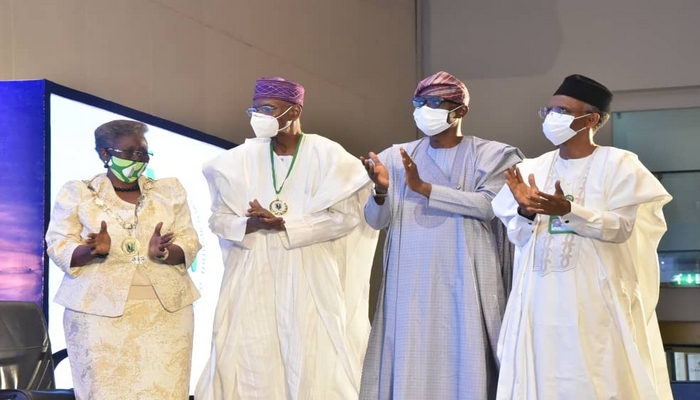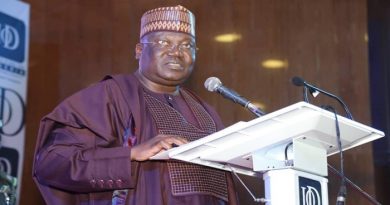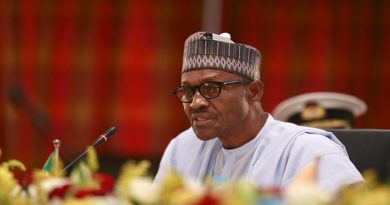Sanwo-Olu tasks tax practitioners, payers on effective tax administration system
Governor Babajide Sanwo-Olu of Lagos State has urged tax practitioners and taxpayers to contribute their quota to the move toward ensuring effective and efficient tax administration system in Nigeria.
He made the call in his opening remarks at the 22nd Annual Conference of the Chartered Institute of Taxation of Nigeria (CITN) in Lagos.
The theme of the Conference was: Taxation and Economic Competitiveness: Imperatives for National Development – a Nigerian Subnational Perspective.
According to him, the Nigerian economy has continued to lose huge amount of revenue through the unwholesome practice of tax avoidance and tax evasion.
He said taxation was at the heart of the social contract between governments and the governed, around the world, saying that it remains a major source of revenue for governments all over the world, in addition to being a major fiscal policy tool.
“But in Nigeria, however, we have not optimally explored the instrument of taxation to maximize our revenue generation potential. One major challenge before us today is, how do we improve significantly on tax to GDP ratio, which currently remains one of the lowest in the world.
“We must find ways to curb tax evasion and improve our data gathering, while also making it progressively easier for our people to pay their taxes.
“I would like to call on tax practitioners to continue to uphold the core pillars, principles and ideals of the CITN, to use their skills to simplify the tax compliance process, and to also strive to provide necessary insight and assistance to the Tax Authorities,” Sanwo-Olu said.
The Governor reiterated commitment of the state government to youth empowerment in all its ramifications, through various initiatives like the Lagos State Employment Trust Fund and many others.
He explained that increased economic productivity translates into increased government revenues. Increased revenues then allow the government to invest even more in infrastructure and an enabling right, which will further engender private investment, ultimately becoming a virtuous cycle of prosperity for all concerned.
According to him, 75 per cent of annual revenues in Lagos State are generated internally, that is, from taxes, as opposed to Federal allocations.
He added that in 2019, Lagos contributed 65% of the VAT of Nigeria, saying that it generated N644b in internal revenue in the same year, with over 58% of this being taxes and levies.
Also speaking, the Governor of Kaduna State Malam Nasir El-Rufai, said that only a minority of Nigerians pay income tax, and a majority of this tiny minority were persons whose taxes were deducted at source.
El-Rufai said that many of our state governments and the Federal Government were not collecting as much tax as they should.
Quoting the International Monetary Fund (IMF), El-Rufai said that Nigeria’s tax revenue mobilization is one of the lowest in the world, reflecting weaknesses in tax administration and systemic non-compliance, with less than 6 percent compliance by corporate taxpayers and 2 percent compliance by individuals.
According to him, the current VAT system suffers from a number of challenges, including a low rate (7.5 percent, less than half of the regional average) and the absence of many features of a modern consumption tax.
He stressed that diversifying Nigeria’s revenue base and increasing non-oil revenue, would enable the Government to increase expenditures for economic development and reduce budget exposure to the volatility of oil revenues.
“This low rate of internal revenue collection depresses public finances, hampers the ability to deliver social goods, services and physical infrastructure.
“This in turn limits competitiveness, shrinking the ability to promote the sort of enabling environment and economic dynamism that can create jobs, expand public revenues and improve public welfare.
” Similarly, the lack of a VAT registration threshold, coupled with the presence of a large informal sector and limited input tax credits impedes effective monitoring and control. There are also extensive exemptions, such as on commercial vehicles; farming inputs, including capital equipment; which all serve to narrow the VAT base,” he said.
Earlier, the President of CITN, Dame Gladys Simplice expressed optimism that the conference would profer solutions to most of the burning issues in the nation’s taxation system.
Simplice said the conference is being attended by a vast array of tax professionals from the professional services firms, academia, tax administration and others.
“Expectedly, we would have a broad spectrum of contributions from their experiences and expertise.
“Discussions would flow to provide a roadmap which would signpost the recommendations that would flow from these and other burning issues.
“There role of taxation in the development and sustenance discourse cannot be emphasized enough. Therefore, we are happy to engage this subject every time an opportunity presents itself, more so as we believe in its vast potential to deliver economic prosperity for our great country,” she said.
Picture caption:
L-R: Gladys Olajumoke Simplice, president/chairman of council, Chartered Institute of Taxation of Nigeria (CITN); David Ajibola Olorunleke, doyen of taxation; Babajide Sanwo-Olu, governor, Lagos State, and Nasir El-Rufai, governor, Kaduna State/keynote speaker, at the opening ceremony of the 22nd annual tax conference.




